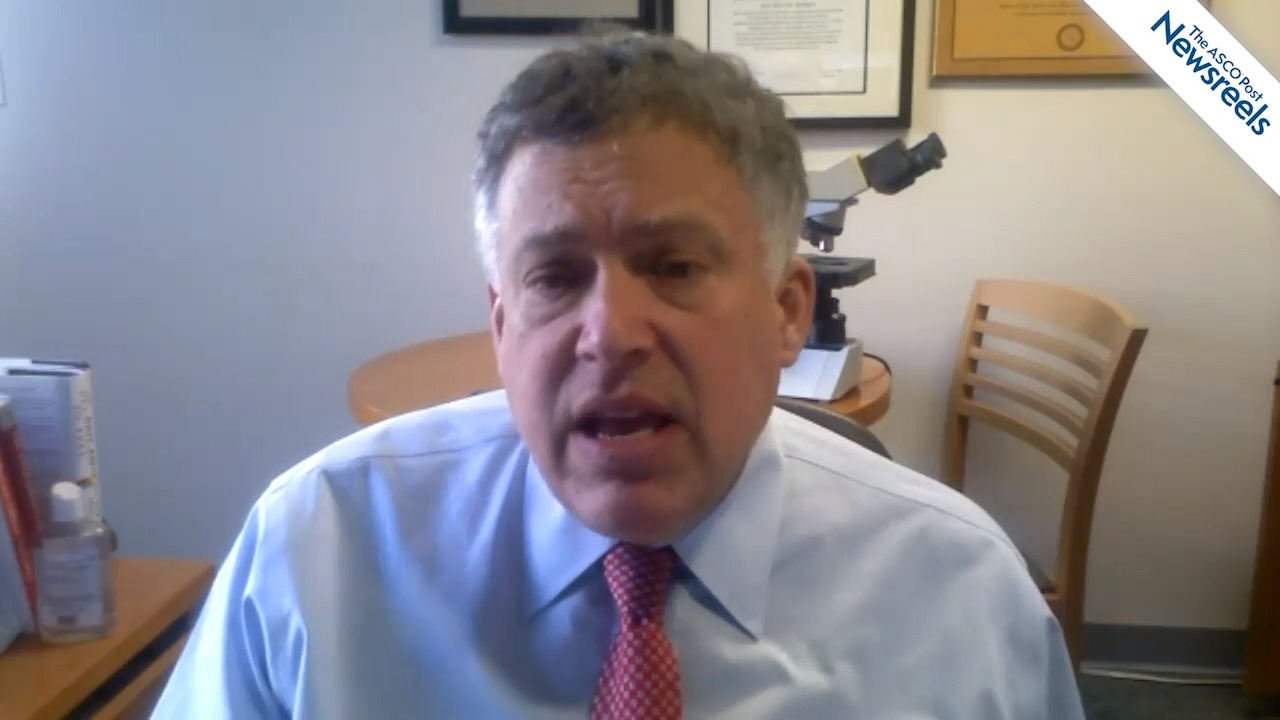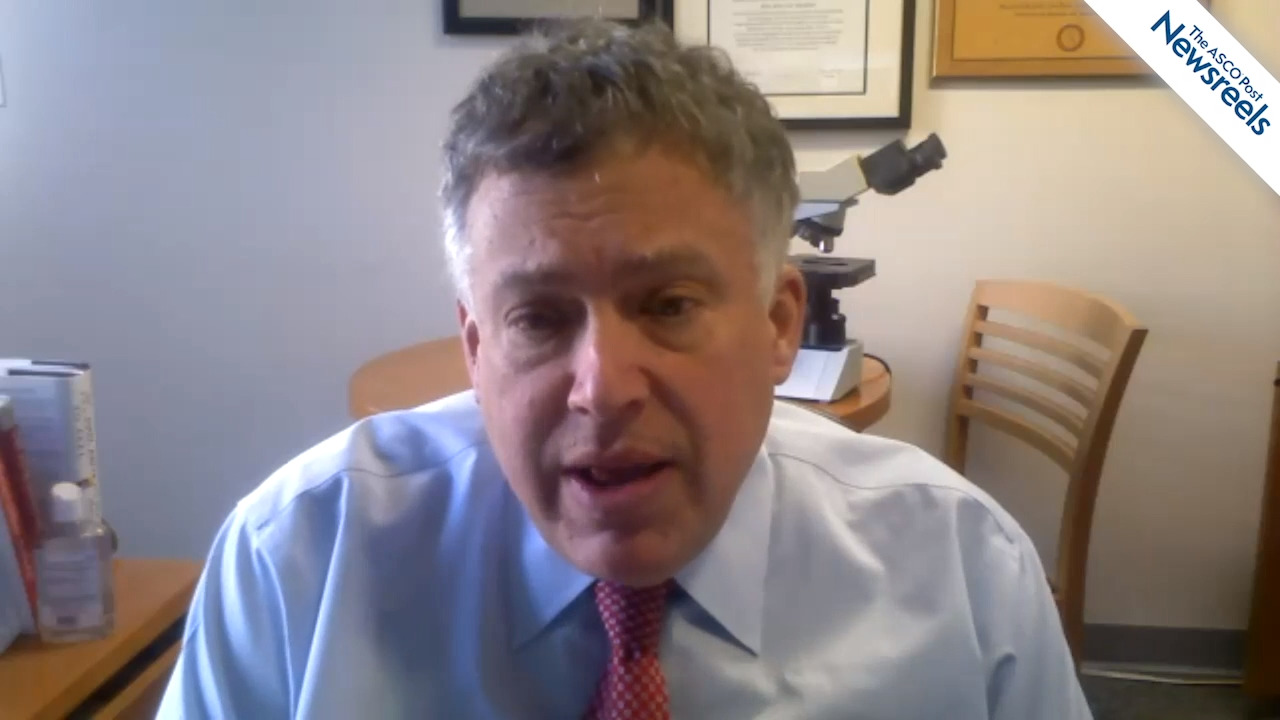Related Videos
Fred R. Hirsch, MD, PhD, on Searching for Therapeutic Strategies for Patients With Lung Cancer and COVID-19 Infection
Fred R. Hirsch, MD, PhD, of Mount Sinai Medical Center, invites his colleagues to enroll their patients in a large prospective study, for which he serves as Principal Investigator. The study is searching for solutions for treating patients with lung cancer who also have the coronavirus, because so many experience an aggressive course of infection.
Martin Reck, MD, PhD, on NSCLC: Pembrolizumab Plus Ipilimumab in First-Line Treatment
Martin Reck, MD, PhD, of the LungenClinic, discusses findings of the KEYNOTE-598 study, which showed that pembrolizumab plus ipilimumab was more toxic and offered no more benefit in terms of efficacy than pembrolizumab plus placebo in first-line therapy for patients with metastatic high PD-L1–expressing non–small cell lung cancer (Abstract PS01.09).
Roy S. Herbst, MD, PhD, on LUNG-MAP, Circulating Tumor DNA, and Tissue Molecular Analysis
Roy S. Herbst, MD, PhD, of Yale University, discusses results from the LUNG-MAP Master Protocol, which support the planned use of circulating tumor DNA for enrollment onto LUNG-MAP substudies, with a positive finding meriting inclusion in study; a negative finding, while considered inconclusive, requires the use of tissue samples (Abstract MA08.10).
Dean Fennell, FRCP, PhD, on Mesothelioma: Nivolumab vs Placebo in Relapsed Disease
Dean Fennell, FRCP, PhD, of the University of Leicester, discusses phase III results from the CONFIRM trial, which sought a standard immunotherapy treatment to improve overall survival for patients with mesothelioma who have relapsed after taking pemetrexed and cisplatin. Globally, the incidence of mesothelioma is on the rise; in the United Kingdom alone, it has gone up nearly 500% since the 1970s (Abstract PS01.11).
Roy S. Herbst, MD, PhD, on NSCLC: Osimertinib and Patient-Reported Outcomes
Roy S. Herbst, MD, PhD, of Yale University, discusses two key abstracts from the ADAURA trial: the use of osimertinib as adjuvant therapy for resected EGFR-mutated non–small cell lung cancer; and patient-reported outcomes, which showed a benefit in disease-free survival and maintenance of health-related quality of life in patients with resected stage IB to IIIA disease (Abstracts OA06.04 and OA06.03).





